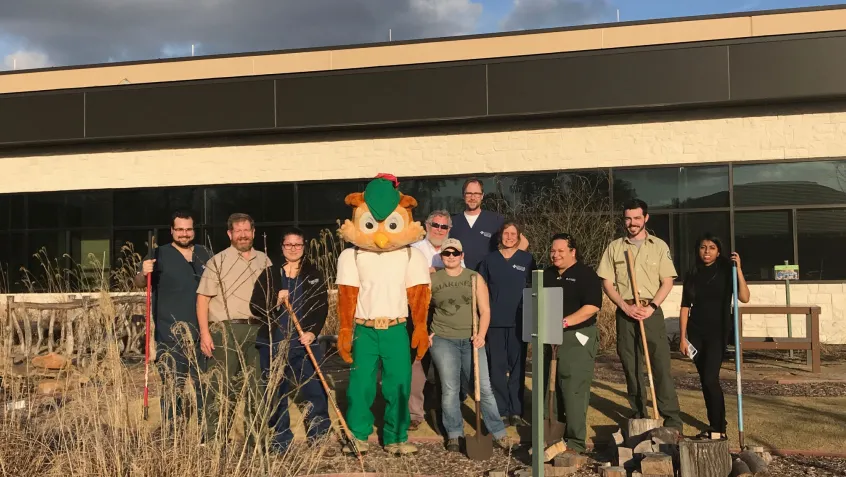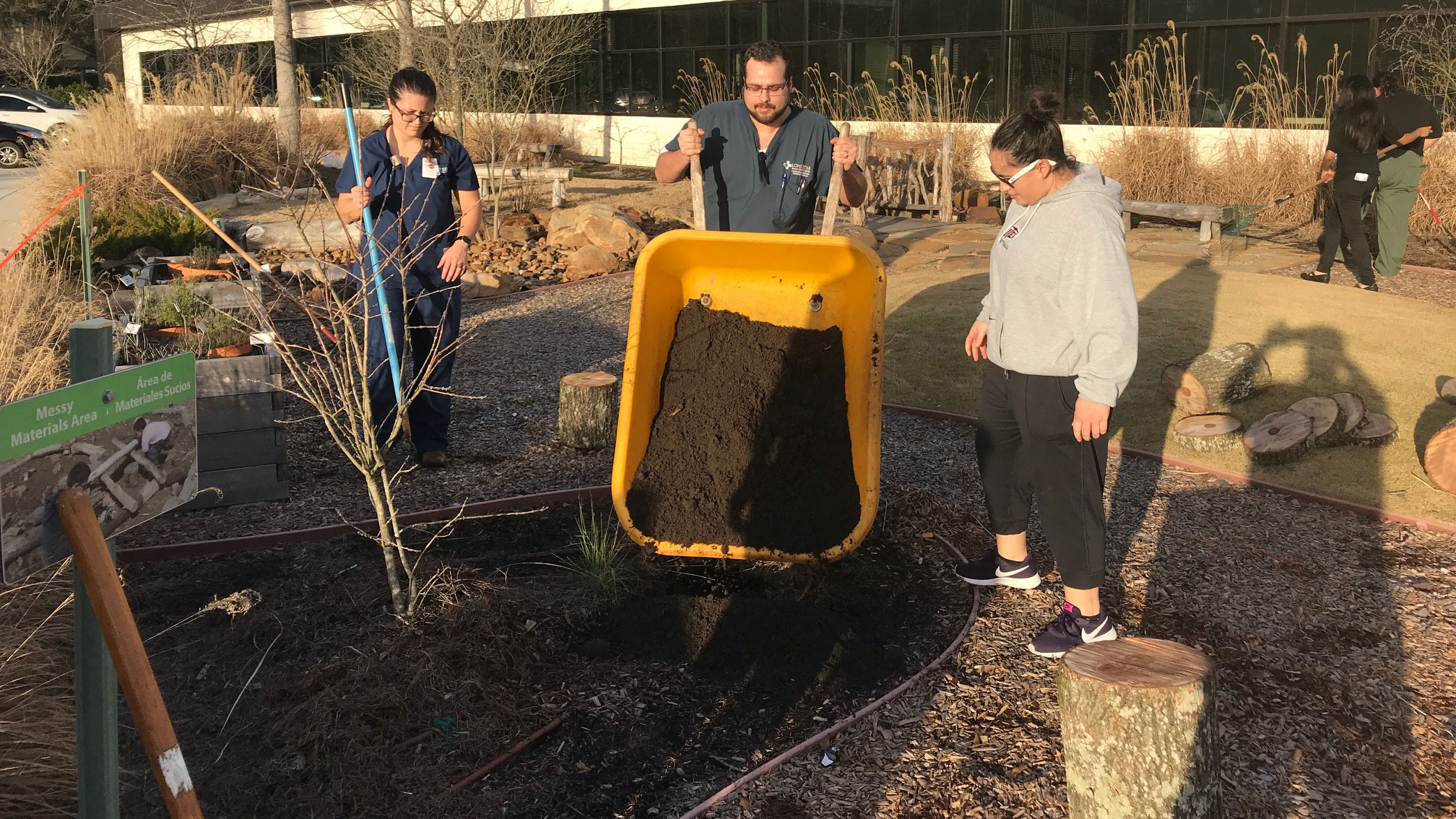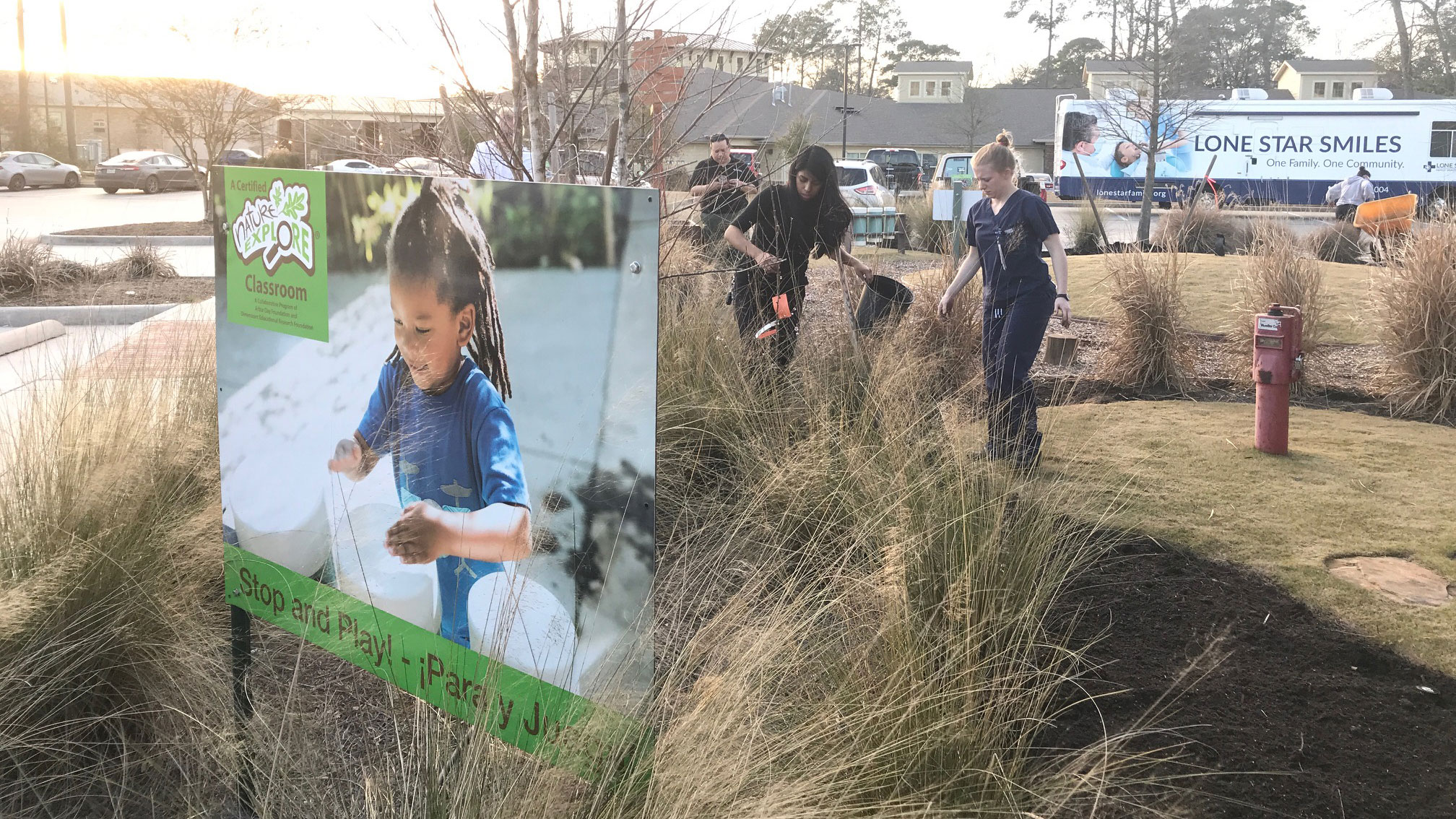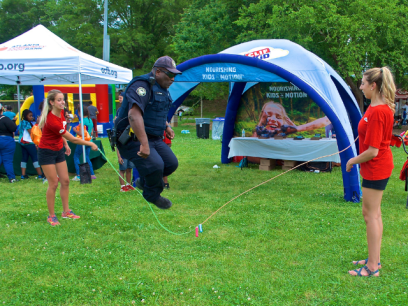
Doctors from Lone Star Family Health Center (LSFHC) near Houston, Texas, worked side-by-side with youth leaders from Woodsy Owl Conservation Corps, staff from Texas A&M Forest Service, and community conservation partners Bartlett Tree Experts, Heartwood Chapter Texas Master Naturalist, and Montgomery County Texas Master Gardener to enhance the Nature Explore site at LSFHC by planting locally sourced wildflower seed mixes, native flowering fruit trees, and bushes. The project was supported by a grant from NEEF with major funding support from the US Forest Service.
“The placement of pollinator specific plants is important to the overall connectivity of outdoor urban forested spaces among pollinators like bees, butterflies, birds, and bats as well as making people aware of the significance of nature-based places for overall well-being of mind, body, and soul,” explains Urban District Forester John Warner with Texas A&M Forest Service.

Beginning of the Nature Explore Site
The Nature Explore site at LSFHC was established in April 2016 and is a collaborative project with Arbor Day Foundation and Dimensions Educational Research Foundation that works with community partners in transforming children's lives through research-based outdoor classroom design play spaces and patient health and wellness promotion and educator workshops. LSFHC was the first in Texas and the first in the nation to have a health care facility install a Nature Explore site that compliments traditional medicine and treatments with a good dose of vitamin "N" for nature.
Nature Champion Dr. Daniel Porter, Medical Director at LSFHC, has long believed that a person's wellbeing may be influenced just by stepping outdoors and engaging with nature. Dr. Porter and his staff of doctors write “Rx to Nature” for their patients to get outdoors, get moving and get fit while enjoying their community parks and urban forested areas. This practice of immersing yourself into the outdoors can greatly help with depression, anxiety, and fatigue to name just a few.
“The placement of pollinator specific plants is important to the overall connectivity of outdoor urban forested spaces among pollinators like bees, butterflies, birds, and bats as well as making people aware of the significance of nature-based places for overall well-being of mind, body, and soul.
Urban District Forester John Warner with Texas A&M Forest Service.
Learn more about the creation of this nature-rich area and the benefits it can provide to the health outcomes of children and their families.
LSFHC was founded in 2002 to provide health care to the Conroe area's underserved, as well as to the community at large. It offers a variety of specialized services, dental and mental health clinics, and a Family Medicine Residency Program. Yearly, LSFHC sees over 80,000 low-cost patient visits, and graduates ten of its thirty resident physicians. To learn more about the project, check out this blog post from our partner, Nature Explore.

The papers referenced in this video are cited in full below:
- Centers for Disease Control and Prevention. 2015. "Childhood Obesity Facts." Accessed September 3, 2016. https://www.cdc.gov/healthyschools/obesity/facts.htm
- Cleland, V., D. Crawford, L.A. Baur, C. Hume, A. Timperio, and J. Salmon. 2008. "A Prospective Examination of Children's Time Spent Outdoors, Objectively Measured Physical Activity and Overweight." International Journal of Obesity, no. 32, 1685-1693. doi:10.1038/ijo.2008.171
- Ogden, C.L., M. D. Carroll, B. K. Kit, K. M. Flegal. 2014. "Prevalence of Childhood and Adult Obesity in the United States, 2011-2012." Journal of the American Medical Association. 311(8):806-814. doi:10.1001/jama.2014.732

